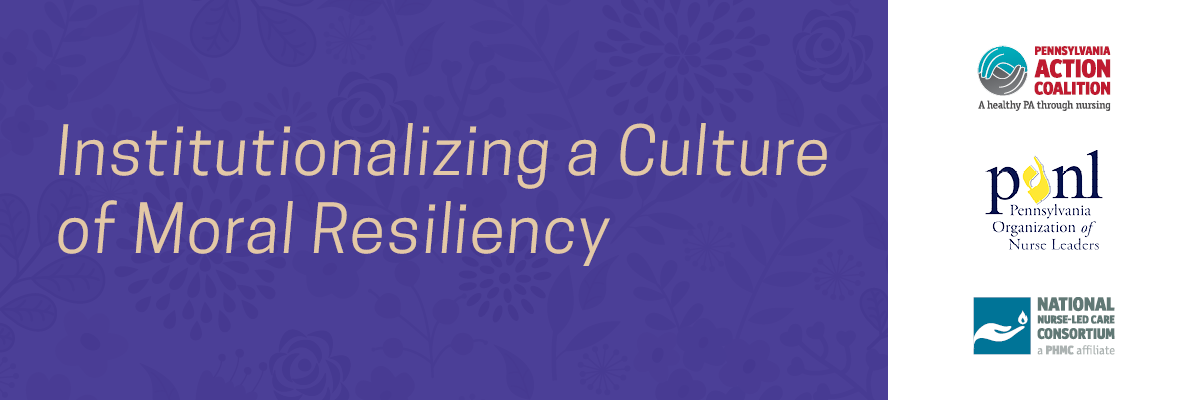
The Pennsylvania Action Coalition (PA-AC), in partnership with the Pennsylvania Organization of Nurse Leaders (PONL) and the National Nurse-Led Care Consortium (NNCC), produced a webinar series that focuses on institutionalizing a culture of resiliency for nurses during a high-stress time. In producing this webinar series, we aim to provide a platform to share tangible resources that can be implemented across various nursing roles that are specific to their work. We extend our sincere gratitude to nurses who are currently serving on the front-lines of the COVID-19 pandemic and the entire nursing profession for their dedication to our health and safety.
To view the webinar series, click on the links below or visit our Resource Library.
The first part of this webinar series focuses on how to recognize signs of moral distress and the ethical challenges faced by nurse managers. The presentation includes an interactive discussion on the causes of distress, tools to employ combat distress and strategies to develop personal moral resiliency.
Presented by:
The second part of this webinar series focuses on strategies for nurse managers to use in supporting their nursing workforce in developing moral resiliency. The presentation includes an interactive conversation on how to navigate emotional, personal, and logistical struggles, and strategies to employ as a nurse manager to institutionalize a culture of resiliency.
Presented by:
Presented by:
The impact of COVID-19 on healthcare practices is unprecedented. Preparedness efforts during re-opening are being implemented at community health centers, primary care practices, school systems and on college campuses. Learn how to operationally transform your practice site by developing infection prevention mitigation strategies, effectively utilize telehealth/telemedicine, leverage your EHR and develop public health risk messaging for your patients.
Presented by:
With the dramatic growth of the Latino older adult population, Alzheimer’s poses a serious threat to the health and economic well-being of the Latino community. In fact, by 2030, nearly 40% of Americans living with Alzheimer's will be Latino or African American. This webinar provides an overview of the latest science related to health disparities in Alzheimer’s impacting Latino families, including lagging detection and inaccessible research. Health and advocacy experts discuss opportunities for promoting culturally tailored brain health education in communities and in healthcare practices. The webinar culminates in a call to action related to filling brain health knowledge gaps among Latino-serving providers who work on the frontlines of the growing Alzheimer’s crisis in underserved communities.
Presented by:
The sixth part of this webinar series focuses on the unique role of NPs in mitigating burn-out in the clinical setting. The presentation includes an interactive conversation on the NP role and how NPs are supporting and creating cultures of resiliency within a care team.
Presented by: